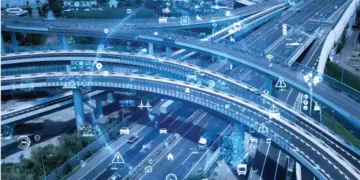The impact of social media on society is a nuanced and multifaceted phenomenon, characterized by both promise and peril
Social media has altered the way we communicate, connect, and consume information, shaping our social interactions, cultural norms, and even political landscapes. From facilitating global connectivity to fostering online communities, its impact on society is undeniable. However, beneath the veneer of connectivity lies a complex tapestry of effects, both positive and negative, that warrant careful examination. In this article, we delve into the multifaceted impact of social media on individuals, communities, and society at large.
- Connectivity and Community Building:
Social media platforms have democratized communication, enabling individuals to connect with friends, family, and like-minded individuals across geographical boundaries. Online communities centeredaround shared interests, hobbies, and identities have flourished, providing a sense of belonging and support to marginalized groups and individuals. The ability to amplify voices and mobilize collective action has catalyzed social movements, driving awareness and advocacy on issues ranging from climate change to human rights.
- Information Access and Dissemination:
The instantaneous nature of social media has transformed the dissemination of information, empowering individuals to access news, opinions, and perspectives from a myriad of sources. However, the democratization of information comes with inherent challenges, including the proliferation of misinformation, fake news, and echo chambers. The viral spread of sensationalized content and confirmation bias can exacerbate societal polarization, erode trust in traditional media, and undermine democratic discourse.
- Mental Health and Well-being:
While social media offers unprecedented opportunities for connection and self-expression, it also poses significant risks to mental health and well-being. The curated nature of social media feeds can foster feelings of inadequacy, comparison, and FOMO (fear of missing out), leading to anxiety, depression, and low self-esteem, particularly among young users. The constant barrage of notifications, likes, and comments can contribute to addictive behaviors and a compulsive need for validation, detracting from real-world relationships and experiences.
- Privacy and Data Security:
The collection and monetization of user data by social media platforms raise profound concerns regarding privacy and data security. From targeted advertising to algorithmic profiling, individuals’ personal information is commodified and exploited for commercial gain, often without their explicit consent or understanding. Moreover, the proliferation of online harassment, cyberbullying, and cyberstalking underscores the need for robust measures to protect users’ safety and privacy rights in the digital realm.
- Digital Citizenship and Ethical Responsibility:
As digital citizens, we have a collective responsibility to navigate the ethical complexities of social media usage and uphold principles of digital literacy, critical thinking, and online civility. Educators, parents, and policymakers play a crucial role in fostering media literacy skills and empowering individuals to engage with social media responsibly, ethically, and empathetically. Moreover, tech companies must prioritize user well-being and societal impact over profit motives, implementing transparent policies and safeguards to mitigate the negative externalities of their platforms.
- Conclusion:
The impact of social media on society is a nuanced and multifaceted phenomenon, characterized by both promise and peril. While it has revolutionized communication, connectivity, and civic engagement, it also poses significant challenges to privacy, mental health, and democratic discourse. As we navigate the ever-evolving landscape of social media, it is imperative to cultivate a critical awareness of its effects, advocate for ethical practices, and harness its potential as a force for positive social change and collective empowerment.
The writer can be contacted at shahidhakla360@gmail.com



